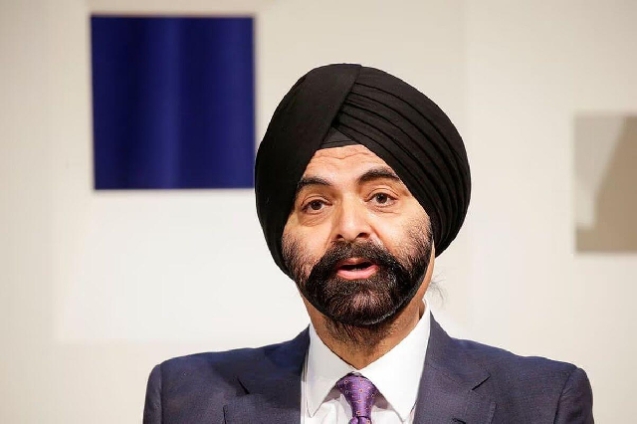
Audio By Carbonatix
The swift tightening of monetary policy in advanced economies, especially the United States, in response to high inflation poses grave challenges to emerging markets and developing economies (EMDEs) such as Ghana.
According to the World Bank, the tightening of financial conditions in the United States and the associated increase in risk aversion spill over to EMDEs, leading to higher domestic interest rates and risk spreads as well as lower equity prices.
“Increases in U.S. interest rates also boost the cost of servicing dollar-denominated debt—both directly, by raising interest payments, and indirectly, by pushing up the foreign exchange value of the dollar, which increases the domestic-currency cost of repaying dollar debt”, it explained in its June 2023 Global Economic Prospects Report.
It added that currency depreciation may also exacerbate inflation, requiring additional monetary tightening by EMDE central banks.
These spillovers, it continued, can heighten the likelihood of financial distress in EMDEs, especially in those with pre-existing vulnerabilities.
“Indeed, these developments have already contributed to financial strains and even default in several countries. EMDEs have become particularly exposed to rising global interest rates, as the COVID-19 pandemic gave further impetus to a broad-based surge in debt levels in EMDEs, with government debt reaching record highs”, it added.
Increase in US interest rates due to inflation
The report further said persistently high U.S. inflation, along with the Fed’s pivot toward a more aggressive tightening stance, suggests that increases in U.S. interest rates over the past year and a half have been driven predominantly by inflation and reaction shocks.
“That said, the recent period of turmoil in the global banking sector has further complicated the path of U.S. monetary policy. If recent banking stresses were to intensify, the Fed could pause or even reverse its tightening of monetary policy”, it mentioned.
Latest Stories
-
Adom FM’s ‘Strictly Highlife’ lights up La Palm with rhythm and nostalgia in unforgettable experience
2 hours -
Ghana is rising again – Mahama declares
5 hours -
Firefighters subdue blaze at Accra’s Tudu, officials warn of busy fire season ahead
6 hours -
Luv FM’s Family Party In The Park ends in grand style at Rattray park
6 hours -
Mahama targets digital schools, universal healthcare, and food self-sufficiency in 2026
6 hours -
Ghana’s global image boosted by our world-acclaimed reset agenda – Mahama
7 hours -
Full text: Mahama’s New Year message to the nation
7 hours -
The foundation is laid; now we accelerate and expand in 2026 – Mahama
7 hours -
There is no NPP, CPP nor NDC Ghana, only one Ghana – Mahama
7 hours -
Eduwatch praises education financing gains but warns delays, teacher gaps could derail reforms
7 hours -
Kusaal Wikimedians take local language online in 14-day digital campaign
8 hours -
Stop interfering in each other’s roles – Bole-Bamboi MP appeals to traditional rulers for peace
8 hours -
Playback: President Mahama addresses the nation in New Year message
9 hours -
Industrial and Commercial Workers’ Union call for strong work ethics, economic participation in 2026 new year message
11 hours -
Crossover Joy: Churches in Ghana welcome 2026 with fire and faith
11 hours

